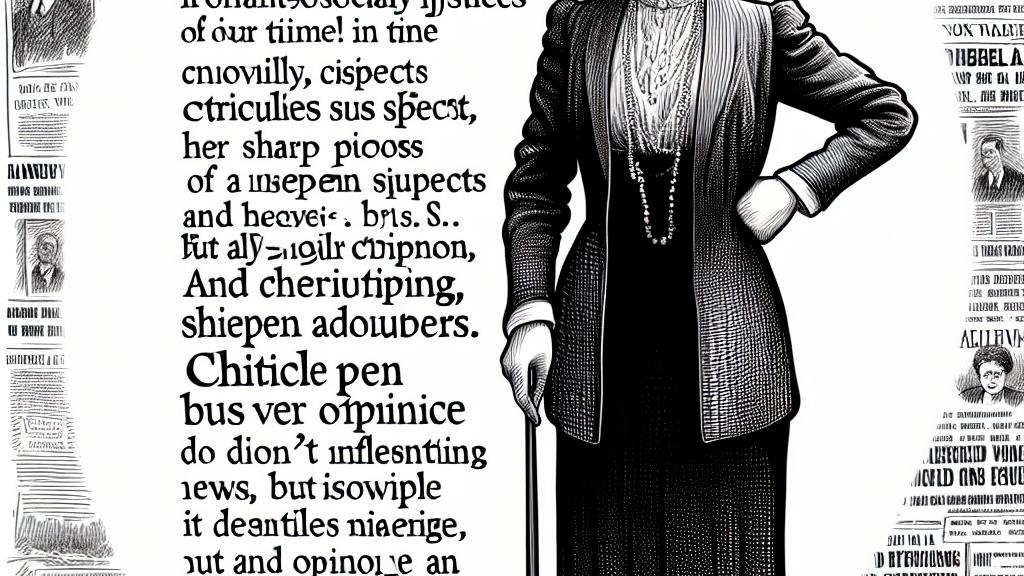Cissy Patterson: The Most Hated Woman in America
Overview
- Cissy Patterson was a formidable newspaper editor in the USA, known for her biting critiques and fierce controversies.
- Her sharp opinions often sparked public outrage, while her personal life was fraught with dramatic twists.
- Patterson's legacy remains significant, intertwining her complex identity with pivotal moments in journalism and women's rights.

Public Persona and Notorious Controversies
Cissy Patterson stood tall as the editor of the 'Washington Herald,' earning the infamous title of 'the most hated woman in America.' Her editorials were not merely articles; they were battle cries that challenged the political and social norms of her time. With a sharp pen, she criticized everything from government corruption to societal injustices, igniting fiery debates that captivated the nation. For instance, her unwavering stance against numerous political figures often led to public confrontations, drawing both fierce supporters and outraged opponents. Patterson didn’t just report the news; she made headlines—her name alone could evoke a visceral response among the public, illustrating the significant role she played in the media landscape.
Turbulent Family Dynamics
Beneath her formidable exterior lay a tumultuous personal life that shaped her public persona. After a fleeting marriage ended tragically, Patterson's search for stability was further complicated by her tumultuous relationship with her daughter, Felicia Gizycka. Their conflicts often erupted in what could be described as 'drunken rows,' revealing the raw and unfiltered dynamics of family life under public scrutiny. Following their infamous split, Felicia turned to Alcoholics Anonymous, a move that might have seemed like a betrayal to Patterson but ultimately became a turning point for both of them. This intimate glimpse into Patterson's family life paints her not just as an aloof journalist but as a deeply flawed, human mother wrestling with her public image and the painful realities of personal relationships.
A Lasting Legacy in Media and Gender Roles
Cissy Patterson's legacy extends far beyond her notorious reputation; she was a trailblazer in the realms of journalism and gender equality. Her courage to voice unpopular opinions paved the way for countless women who sought to break into the journalism field amidst a sea of male dominance. By fearlessly confronting societal expectations, Patterson highlighted the critical need for female representation in media, inspiring future generations of journalists. Furthermore, her life serves as a compelling narrative about ambition, resilience, and the constant fight for empowerment in a world reluctant to embrace change. In essence, Patterson is not merely a figure of controversy; she embodies the complexities of a woman who dared to challenge the status quo, reminding us that change often comes from those willing to stand alone—even when the world deemed them unlikable.

Loading...